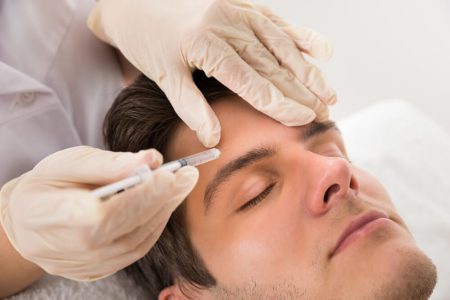When you are looking for a method that will help you heal well from injuries and even muscle problems, platelet-rich plasma therapy could be the right solution to help you get this done. You will take platelets from your own blood and then place them back into your body to help with the healing process. Many believe that this is an effective way for you to get better without all the medications and other therapy options, but due to the expense, you may wonder whether Medicare will cover the PRP therapy.
According to The Fountain Of Youth Med Spa, a Greenwood Village skin care med spa, medicare does not cover PRP in most cases, though there are some exceptions. The reason for this is that PRP injections are a newer form of aesthetic therapy, and there hasn’t been a lot of research done on the effectiveness of the therapy in the first place. While this therapy can help to stimulate the regeneration of cells, there isn’t enough evidence yet to prove that it is effective, and therefore, Medicare will usually not cover it.
Let’s take a closer look at what Platelet Rich Plasma therapy is all about and, why it may be a good solution for your needs, whether or not Medicare agrees to pay for it.
Can I Use Medicare to Pay for PRP Therapy?
In most situations, you will not be able to use your Medicare coverage to help with the PRP injections. Under most conditions, you will not be able to use either Medicare Part A or Medicare Part B to help cover the injections at all. If you are a standard patient and would like to get this therapy done, then you will need to pay for the injection out of pocket.
The reason that Medicare is not going to cover these injections is that the therapy is still relatively new. There need to be more studies done to help show that this While it can be a good therapy to help stimulate the regeneration of cells, there is not enough evidence out there yet to prove that this happens without a doubt. It is gaining in popularity for its ability to help with hair loss, arthritis, and tendinitis, but the research is not there yet.
Does Medicare Ever Help with PRP Injections?
While Medicare will usually not provide assistance with this kind of therapy, there are a few instances where your PRP therapy will be covered. This is often true when the patient has a chronic, non-healing, non-regenerative, diabetic, pressure, or venous wound. This is very specific, so you will have to talk to your doctor to see whether the coverage is possible.
- In these cases, there are a few conditions that the patient will need to follow to help them get the Medicare coverage that they want. This includes:
- The patient needs to be part of a medical research study that will seek to address relevant questions using methods of evaluation with PRP therapy.
- The clinical study that the patient chooses to be part of will need to fall under the National Coverage Determination and be approved by August 2, 2014.
Those who have Medicare Part C could also have the possibility of getting some coverage for PRP injections if they are able to satisfy the criteria above. The difference between the Medicare Advantage Plans and the original Medicare is the fact that the former will come with some additional benefits and perks added in.
How Much Do PRP Injections Cost?
Now that we know that it is unlikely that Medicare is going to pay for the cost of these injections, it is time to look at what the cost of the PRP injections will be. The amount that you will be able to pay will depend on the facility that you attend and the exact amount of platelets that you will need. These procedures are often going to cost between $500 to $2500 per procedure.
Most patients are going to need to get multiple treatments through this in order to help with the issue at hand, which is going to increase the cost. These cost estimates are rough because the procedure is so new, and it is hard to know the exact costs. You will need to talk to your doctor and the clinic to figure out the exact cost that you will spend on the treatment.
Choosing to Do Platelet Rich Plasma Therapy
You will need to talk with your doctor to determine whether PRP is the right therapy for your needs. It has been shown to be effective, though more therapies are necessary to ensure that you are getting the best results out of it and to figure out whether it is the right therapy for your needs. Finding the right professional can help you get this therapy done well.



